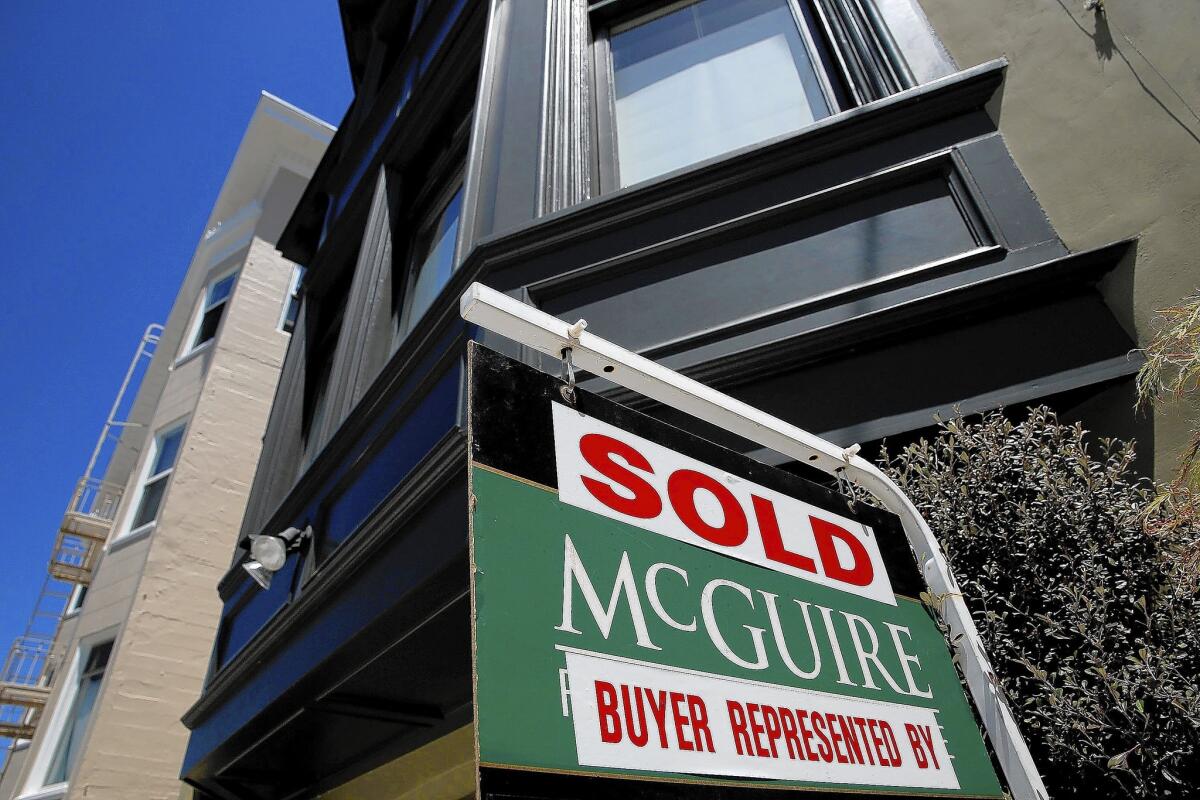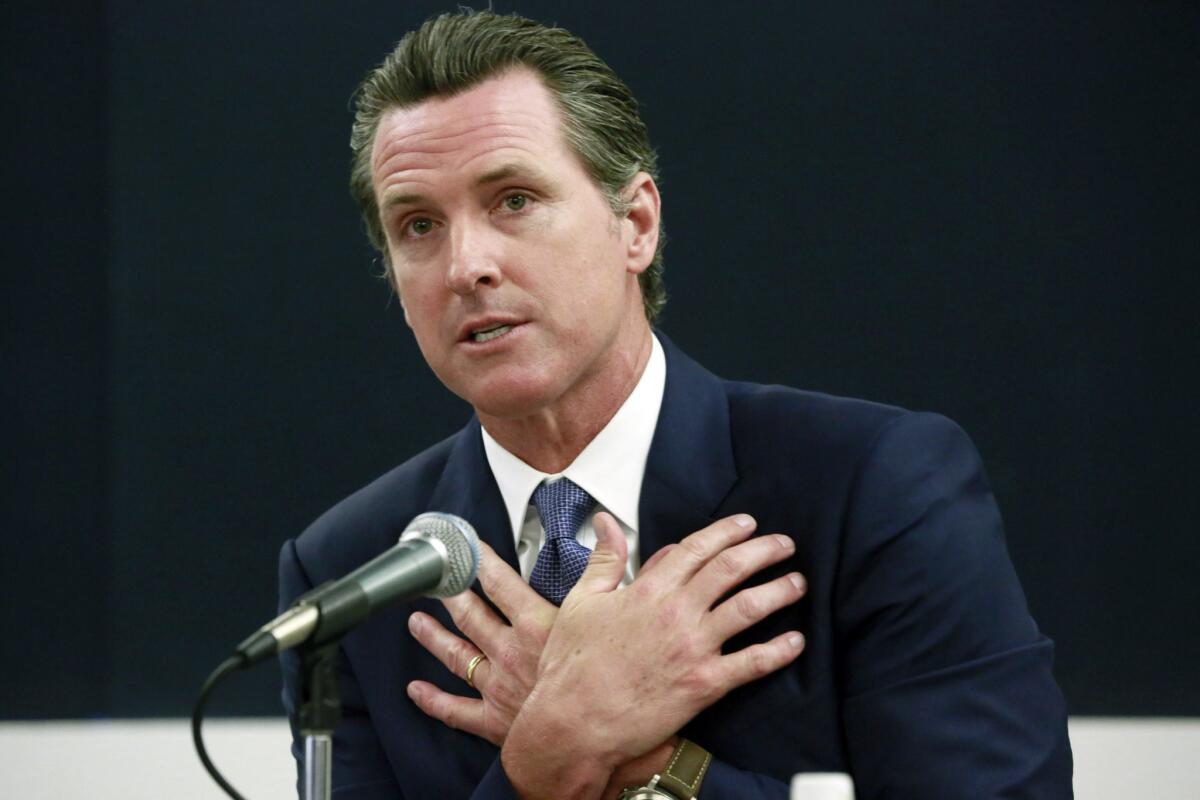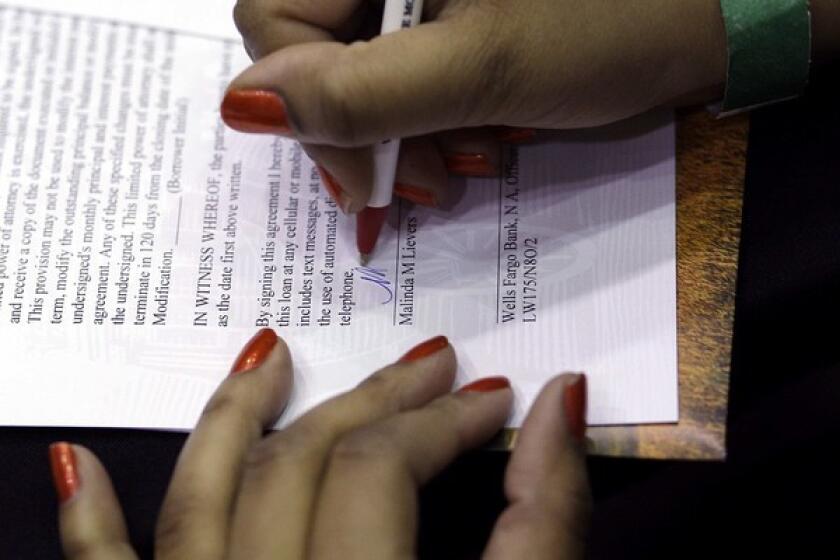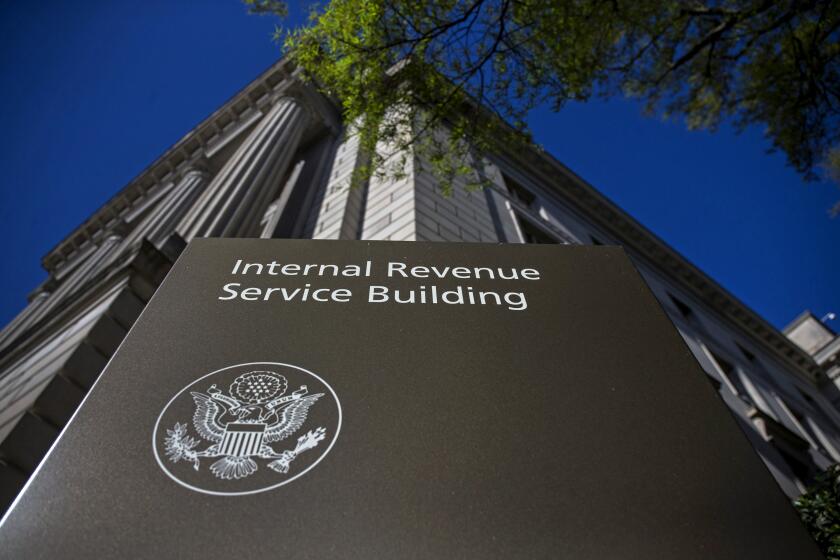On top of everything else, now property taxes are due. Here’s how to get help

More than a million Californians are recently unemployed. Others have seen their hours slashed, or the revenue of their businesses evaporate.
While the coronavirus pandemic has hammered the economy, bills are still coming due. A major one for homeowners, landlords and businesses is property tax, which funds government services that are in high demand during a pandemic and, if left unpaid, can rack up large fines.
Many people pay their property taxes through a mortgage escrow account, with the servicer collecting a bit each month and then paying the county in a lump sum. For those individuals, counties say the property tax should have already been collected and a coming payment deadline isn’t cause for worry. That accounts for about 20% to 40% of land parcels, depending on the area, according to an organization of California tax collectors.
But those who pay their property tax directly to the county could be less prepared.
Counties say they are rolling out help for those who need it. But it’s unclear how people will qualify, leading to the prospect that the help taxpayers receive will depend on where they live, not how they were affected by the virus.
In Los Angeles County, the average yearly property tax bill for a single-family home is about $5,600 — a level kept lower because Proposition 13 holds taxable values well below market values for longtime owners. A person who recently purchased a home in Los Angeles for $650,000 would pay about $7,600 in annual property taxes.
Have you applied for mortgage forbearance because of the coronavirus crisis? We’d like to hear your story.
“This is a pretty significant bill that is coming due smack dab in the middle of this crisis,” said Nisha Kashyap, staff attorney for the pro-bono law firm Public Counsel.
What is the deadline to pay property taxes?
Property taxes in California are paid in two installments. The second is due this Friday. Typically, if property taxes come in after that date, counties impose a 10% fee; then if they aren’t paid by June 30, an additional 1.5% late fee is charged each month.
Many county offices across the state are no longer open to the public, but taxpayers can pay online, over the phone or by mail.
Do I have to pay?
Yes — at least eventually. Counties are not canceling or reducing the amount you owe.
However, many have said they will cancel penalties for late payments if people can’t pay because of COVID-19, the disease caused by the new coronavirus. What connection a hardship must have to the disease, though, isn’t universally defined.

Do I qualify for a cancellation of the late fee?
It depends on where you live. Even then it’s unclear.
The California State Assn. of Counties and the California Assn. of County Treasurers and Tax Collectors have said counties “will use all existing authority to cancel penalties and other charges for homeowners, small businesses, and other property owners that are unable to pay their property taxes due to circumstances caused by COVID‐19 on a case‐by‐case basis.”
But there are 58 counties in California and tax collectors are interpreting their authority differently.
In Los Angeles County, taxpayers who can’t pay on time for “reasons related to COVID-19” can submit a request to cancel their late fee by going to the county’s website starting Saturday, the day after taxes are due.
There isn’t a set list of situations that would qualify for a cancellation. But Los Angeles County Treasurer-Tax Collector Keith Knox said he plans to broadly interpret “reasons related to COVID-19.” He said that could include people who were hospitalized because of COVID-19. It also could be someone who lost their job because a government order closed their business. Or maybe, because the schools closed, parents needed to take care of their kids at home and thus couldn’t work.
“This isn’t the time to squeeze people ... this is a time for us to be understanding and appreciative of circumstances,” Knox said. “There could be a lot of factors tied to employment besides losing your job because the restaurant closed.”
Other counties plan to take a stricter stance.
Dan M. Mierzwa, the tax collector in Yuba County, said he doesn’t think he has the authority to grant penalty cancellations for someone whose business shut down because it wasn’t deemed essential. But he said that “may be different” if the business was taken over by the government to use as a shelter.
“I respect that counsels may have different opinions,” he said.
In Orange County, what qualifies has shifted. Tax Collector Shari L. Freidenrich said in an email that she had received legal guidance that “income loss was not allowed by law, but received revised legal guidance this weekend.” That new guidance says that people with “significant demonstrated economic hardship due to COVID-19” are eligible for a late-fee cancellation.
“We will be closely reviewing each request on a case-by-case basis that we receive from homeowners, small businesses and other property owners who have significant demonstrated economic hardship due to COVID-19,” she said. She didn’t immediately answer an email asking for what would be a “significant demonstrated economic hardship.”
In an attempt to standardize the application process, Karen Lange, a lobbyist for the tax collector association, said the organization is circulating an application template to all 58 tax collectors, but noted that “there is nothing that would compel a ... tax collector to use it.”
The IRS decision to push back the income tax filing deadline to July 15 also applies to other deadlines, such as contributing to IRAs and HSAs.
Can the deadline be extended?
The Friday deadline is set in state law, and advocacy groups for consumers and landlords have called on Gov. Gavin Newsom to extend the deadline.
Ted Mermin, director of the California Low-Income Consumer Coalition, said he sympathizes with local officials who must interpret law amid a “fast-breaking” situation. But he said the differing interpretations show the need for the governor to step in.
“I don’t think that what we want to happen is what side of the county line you live on determines whether you have to pay property taxes at the end of the week,” he said.
Local governments, however, have lobbied Newsom to keep the current deadline. They say a delay would also delay payments by people who can pay and thus threaten government services needed during a pandemic.
“Any delay in payments beyond the April 10 property tax deadline, for individuals or businesses that can pay, will tip local governments into insolvency at a time when our residents need us the most,” the county and tax collector groups said in a recent statement.
The counties also say delaying the date could put various government bonds at risk.
“Even one agency defaulting could negatively impact bond ratings and interest rates for all agencies for years to come,” a coalition of local governments said in a letter to the governor.
Newsom spokesman Jesse Melgar did not respond to a question about whether the governor planned to take any action to delay the Friday deadline or offer property owners further relief.
While most counties such as Los Angeles have stuck to the April 10 date, citing state rules, San Francisco and San Mateo counties have extended their due deadlines to May 4 after actions by their Board of Supervisors that they say allow them to push the date.
What if I have a PACE loan that I pay through my property taxes?
Payments for a PACE energy-efficiency loan are one piece of someone’s larger property tax bill, and thus any cancellation of late fees would also apply to people with the energy-efficiency loans.
However, the waiver of late fees doesn’t absolve homeowners of their obligation to pay their tax bills, leaving open the prospect of foreclosure if payments aren’t made.
The PACE industry, which needs government approval to operate, has faced sharp criticism over the years for saddling homeowners with loans they didn’t understand and couldn’t afford.
Consumer groups have called on the Los Angeles County Board of Supervisors to halt new PACE lending and establish greater financial help for already struggling borrowers who the advocates say “will be pushed into homelessness without relief.”
Some PACE lenders say they have programs in place designed to help borrowers who run into temporary financial difficulties.
“We do not foresee late property tax payments during this COVID-19 emergency being an issue that is likely to escalate to foreclosures,” said Olivia White, vice president of government affairs with lender Renew Financial. She cited the company’s assistance program, which is designed to ensure that “a late or missed PACE payment does not prevent homeowners from getting back on their feet.”
More to Read
Sign up for Essential California
The most important California stories and recommendations in your inbox every morning.
You may occasionally receive promotional content from the Los Angeles Times.









